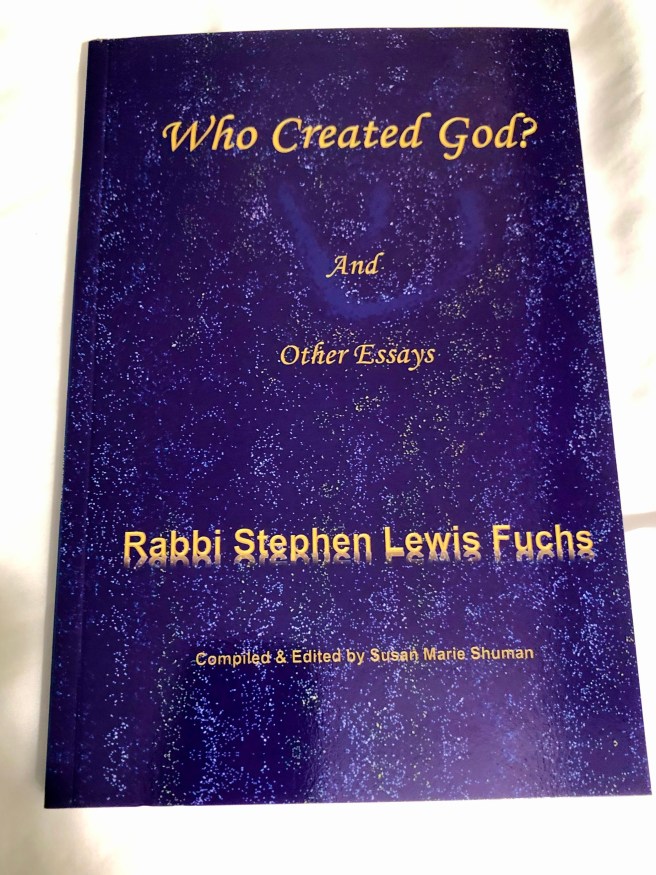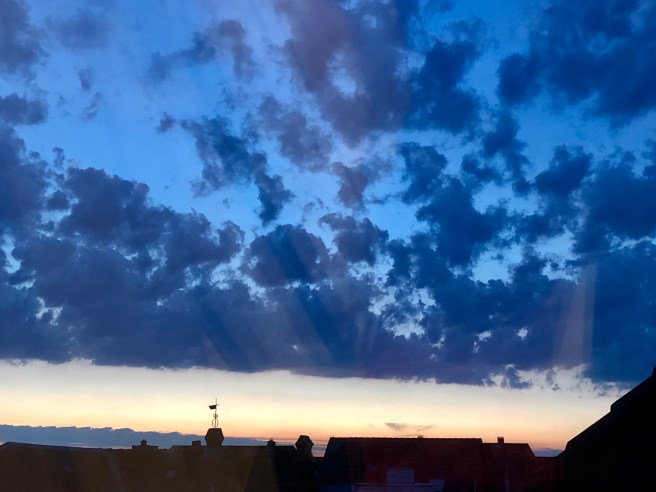Rabbi Kenneth D. Roseman, PhD, died last week. He served for a few years as Director of Admissions and then for several years as Dean of the Cincinnati campus of the Hebrew Union College -Jewish Institute of Religion. With his passing, a true “Light of Israel” has gone out.
As Director of Admissions at the time, Rabbi Roseman interviewed me when I applied to the rabbinical program at HUC-JIR in the winter of 1968.
I approached the interview with trepidation because on paper I was hardly an outstanding candidate. I was no Phi Beta Kappa. In fact I considered my self more of a “Lambda Tau Gamma” as in “Lucky to Graduate” of Hamilton College. On top of that I had the Hebrew background of a Bar Mitzvah student, who had not seriously looked at a Hebrew text since his Bar Mitzvah nine years before.
But Rabbi Roseman must have seen something worthwhile in me, and I could feel the interview was going well. It was going so well that I had the temerity to ask; “Do you think it would be possible for me to spend my first two years of the five year graduate program in Los Angeles?”
While it is now a full-fledged branch of the Hebrew Union College – Jewish Institute of Religion offering the full program leading to ordination, in those days the LA campus was a very small school at which west coast students could take the first two years of the program before transferring to Cincinnati for the last three. It was located in an old estate high up in the Hollywood Hills.
Rabbi Roseman seemed taken aback by my request, and he answered, “Hmm, this is very unusual. Why would you want to do that?”
Well, sir,” I answered, “I am 22-years-old and today in Cincinnati is as far west as I have ever been. I think it would be wonderfully broadening for me to experience life on the west coast.”
For a second I thought I had blown the whole deal, but he responded empathetically. “I tell you what. I will consult with Rabbi Gottschalk (Alfred Gottschalk was then the Dean of the Los Angeles Campus. He would later become President of the entire College-Institute upon the death of Rabbi Nelson Glueck in 1971.) If he says yes, it is OK with me.”
Spending my first two graduate years in LA was one of the best academic decisions I have ever made. To this day I am grateful to Rabbi Roseman for making it possible.
After two years in LA, I spent a leave of absence year studying in Israel** before returning to Cincinnati. So it was at the end of five graduate years that I had completed all necessary course work but had not written my rabbinical thesis.
Because I had no need to be physically on campus Rabbi Roseman helped arrange an internship for me to serve the 58-family congregation, Temple Isaiah, in Columbia, Maryland. Rabbi Roseman offered that it was a great opportunity. I could write my thesis, serve the small congregation’s needs and also teach in the education programs of the largest synagogue’s in both Baltimore and Washington. When I interviewed for a real job for the following year, I would have real congregational experience on my resume.
As my internship year progressed, the congregation began to grow, and in the early spring the leaders of Temple Isaiah asked if I would like to become the congregation’s first full-time rabbi. I jumped at the chance. The next year when the congregation held a formal ceremony of installation, I invited Rabbi Roseman to be our guest speaker.
Time went by. Rabbi Roseman left HUC –JIR to serve a sizeable congregation in the Dallas area. There he wrote several interesting books that changed the way many congregations taught American Jewish History in their Religious Education programs.
A few years ago at the National Association of Retired Reform Rabbis Convention in Phoenix, I was invited to teach a seminar based on my book, What’s in It for Me? Finding Ourselves in Biblical Narratives. Teaching one’s colleagues is always daunting, but the nervousness factor ratcheted up several degrees when I saw Rabbi Roseman sitting among those attending my session. I came up to him before I was to start and said, “Rabbi Roseman, I am so very honored that you …”
“It’s Ken, Steve,” He interrupted me with a smile, “and I am very excited to be here.” He could not have been more attentive or complimentary, and soon I could forget that the person who shepherded my entrance into rabbinical school and helped me launch my career was sitting in my class.
His death caused by the Coronavirus was a shock. He was 80 years old, had a profound influence on my life, and his memory will be to me — as it will be to so many — others a very special blessing.
**Now all entering Rabbinical and Cantorial students spend a mandatory first year studying in Israel. In my day it was optional.



 We are in charge of and responsible for this earth. We must do a better job of caring for it.
We are in charge of and responsible for this earth. We must do a better job of caring for it. Dawn breaking over Husum, Germany
Dawn breaking over Husum, Germany